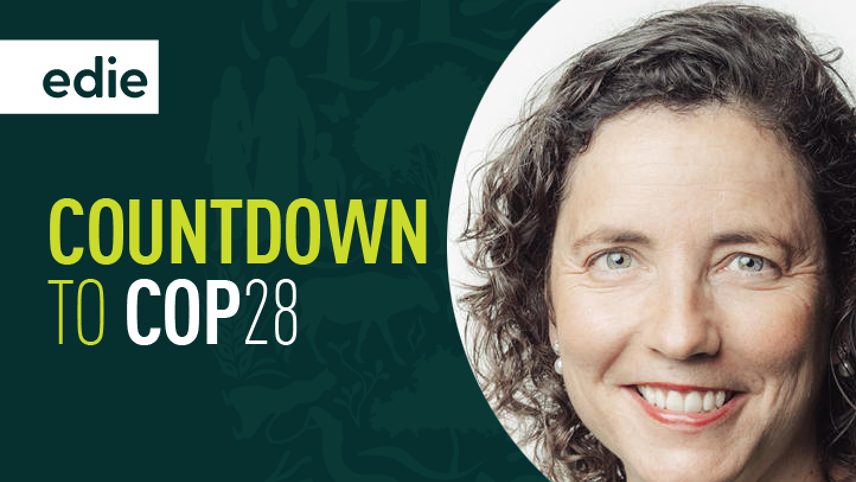Register for free and continue reading
Join our growing army of changemakers and get unlimited access to our premium content

The fight against climate change has recently been marked by both inspiring action by citizens and short-sighted setbacks from their politicians. Whilst an unprecedented Youth vs. Europe climate trial unfolded in the European Court of Human Rights – publicised worldwide as a blueprint for others to follow suit – UK Prime Minister Rishi Sunak watered down the country’s climate policy and approved a brand-new oil and gas field.
At a global level we’ve made great strides in scaling-up clean energy solutions but we’re not reversing the trend on rising global emissions – a battle we will keep losing until we address the underlying cause: the burning of fossil fuels.
Today, fossil fuels still account for close to 80% of global energy supply, a share that has hardly moved since the first COP in Berlin in 1995. While the International Energy Agency (IEA) recently projected for the first time that fossil fuel consumption would peak before 2030 and then fall into decline, this will only happen if planned policies and commitments are delivered. Moreover, the science tells us global emissions must peak by 2025 and halve by 2030 to keep 1.5°C in reach.
Businesses need clear, consistent and decisive action from government on the transition from fossil fuels to a clean energy system. And although this is now more frequently on the agenda at major international forums, the formation of coherent policies at the pace and scale required is still missing. That’s why we’re calling on businesses to step up and be the catalyst for change.
Business can create an ambition loop
Leading companies have already shifted their strategies to capitalise on the opportunities that come from pathways to limit 1.5C. Those that think long-term and choose to rapidly scale renewables, electrification and energy efficiency, whilst phasing out fossil fuels from their business operations, will not only achieve their climate targets but also demonstrate their competitive advantage and resilience — minimizing business risks and ensuring long-term shareholder value.
A recent poll conducted by the We Mean Business Coalition (WMBC) found that nearly half of business leaders (47%) surveyed expect to phase out fossil fuels from their companies by 2040, and 70% by 2050. More than 14,000 have already committed to cutting their emissions in half by 2030 and develop plans and investment to turn these targets into reality. But far more need to explicitly translate ambition into a public end date for fossil fuels.
One of the biggest barriers remains government policy and infrastructure. Of the business leaders we polled, 82% see government regulation as the most important, or second most important, accelerator for the energy transition. We saw this in response to Prime Minister Rishi Sunak’s watering down of UK climate policy, with Ford UK Chair Lisa Brankin highlighting the business risk of relaxing commitments such as the 2030 ban on new petrol and diesel cars, which had been ‘a vital catalyst to accelerate Ford into a cleaner future’.
Last year’s climate summit saw 80 nations signal support for the phase out of fossil fuels. COP28 can push that number higher. Businesses have the tools and the influence to drive change. Decisive action from businesses to set clear transition strategies for fossil fuel phase out creates pressure for change across industry sectors and from governments to create the right regulatory environment for them to deploy clean solutions at the speed and scale required.
This is the ambition loop in action. Without it, hesitation and hedging on the longevity of fossil fuels will remain, creating policy uncertainty and stymieing clean energy investment.
What does taking action look like?
Taking action is an easy thing to say, but harder to put into practice. Fossil fuel phase out will look different for every business, with no ‘one-size fits all’ solution. However, there are clear steps that every business can take to begin driving this change.
First, commit to phase out the use of unabated fossil fuels across their operations by 2040 at the latest. Then publish a Climate Transition Action Plan that includes a phase-out plan with interim targets for fossil fuel use, and a phase-in plan with targets for scaling clean energy. Finally, commit to getting a majority of Tier 1 suppliers to set credible net-zero commitments well before 2030. If your company has a science-based target, these steps are inevitable in your pursuit to achieving your targets.
We know this is no easy challenge, which is why the WMBC has launched a new, multi-year campaign – Fossil to Clean – built around a set of ambitious, science-led guiding principles to inspire business action, as well as informing the transition plans and strategies of fossil fuel producers, finance and government.
The principles are built off the recommendations of the UN High-Level Expert Group on Net Zero (HLEG) and were developed using the latest available modelled pathways that limit warming to 1.5°C with no or limited overshoot, reaching net zero by 2050.
There are already many clean energy solutions available to help businesses phase out fossil fuels – we’re not moving from a standing start. Investing in and using these technologies will send a clear signal that businesses are on the move to net zero.
This is a unique moment in time where a managed transition from fossil fuels to clean energy is not only critical, but feasible. Now is the moment to go a step further and tackle fossil fuels head on, and success will not be possible without decisive action from business.



Please login or Register to leave a comment.